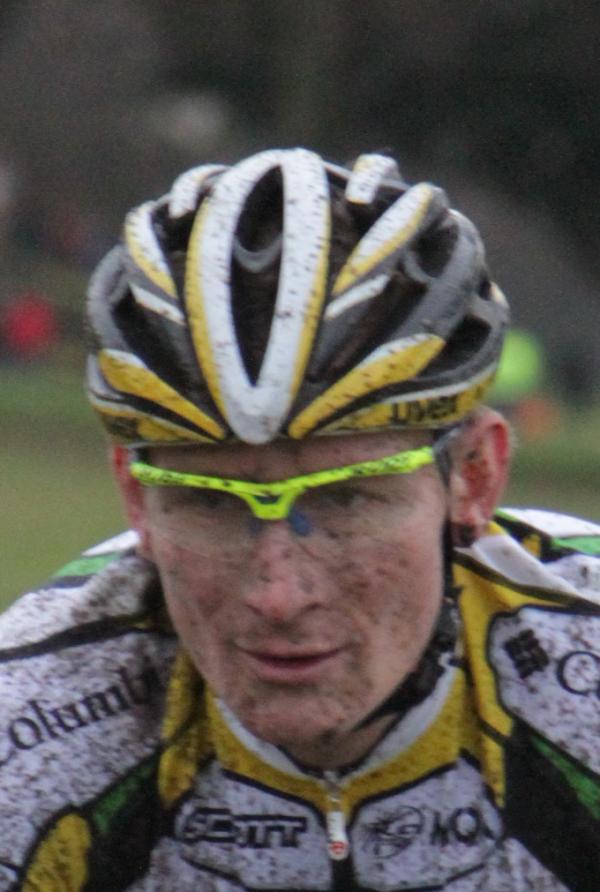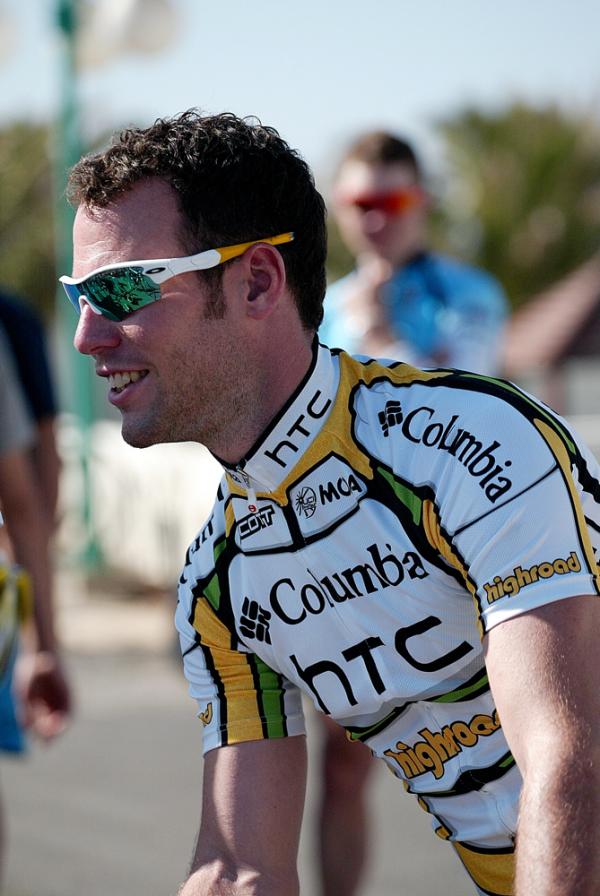Cavendish and Greipel to ride Vuelta together?
Worlds may prompt Columbia HTC's two sprinters to share spoils in Grand Tour


With the thoughts of a rainbow jersey spurring him on, Mark Cavendish is likely to make his Vuelta a España debut in 2010, and could find himself working alongside Columbia HTC’s other big sprinter, Andre Greipel in the race.
As his autobiography Boy Racer outlines, the two have had a tense relationship in the past, although it is believed that they are now on better terms than before. They have not shared the billing in a major race recently, though, and the Vuelta – or perhaps the Tour before that – could see the team try to juggle the two sprinters and work out a way for both to shine.
“Cavendish and Greipel both want to come to the Vuelta – they want to do it as the worlds are after that,” revealed Columbia HTC’s Allan Peiper at Wednesday’s route launch in Seville.
“I’d say that any sprinter who wants to be world champion has to be in the Vuelta. I won’t say they have to go to Madrid, but it would be ideal; you have still got two weeks, as the worlds is on a week later next year. You can fly the Tuesday after the Vuelta finishes, giving you 12 days in Australia to get over the jetlag, see the course, freshen up. It would be actually perfect.”
The road race in Geelong is regarded as the first real sprinter’s course since Zolder in 2002. Cavendish is one of several sprinters who have indicated that the race is a major target and, if recent history is to be relied upon, the winner in Australia will almost certainly have competed in the Spanish Tour beforehand.
In order to give both riders an equal chance – and thus double the team’s potential to have its first world road race champion - Columbia HTC could be fielding two big sprinters in the Vuelta. Cavendish won six stages at this year’s Tour de France, while Greipel landed four stages plus the points jersey in Spain. Both would clearly want to add to their Grand Tour success rate, and so some degree of compromise would form the basis for a successful collaboration.
“The discussion point at the moment is how it might work,” said Peiper. “They have both got aspirations to be world champion, so they probably both want to be in the Vuelta. Especially now, seeing the course.
The latest race content, interviews, features, reviews and expert buying guides, direct to your inbox!
“As regards the Tour de France, that is still an open question. Obviously Mark is the lead guy, he is the main sprinter and Andre understands that. So we are just working out a programme now that fits with both of them and works. If Mark has got aspirations of the green jersey and also being world champion, his race programme needs to work around that.”
Speaking to Cyclingnews after winning the points jersey in the Vuelta, Greipel said that he wanted the chance to race in France in July. “I would like to do the Tour [at least] once,” he said. “I hope it’s next season.”
If that does happen, Peiper doesn’t envisage one leading out the other, even if that combination sounds like it could ensure even greater Columbia HTC domination. Outright speed is important, of course, but so too the almost –telepathic understanding between the sprinter and the rider who is the last to pull off before the line.
“In Mark Renshaw, we have got the best lead-out guy in the business…in fact, possibly the best in the last ten years,” explains Peiper. “He is a good sprinter in his own right, but he has that intrinsic intelligence of the sprint. He knows exactly where his man is on his hip, he knows exactly all the circumstances around him and where he has to go. He is the man who depicts how the sprint is going to be started, how the team has got to ride – he even talks about the tactics himself before the start. That takes a hell of a lot of pressure off Mark Cavendish.
“So even with Greipel possibly going to the Tour, we would still have Renshaw there as the pull-man.”
2010 Vuelta made for sprinters
The Briton and the German are far from the only sprinters who will want to compete in the Vuelta. The nature of the worlds, the timing of that race and even the pattern of the Vuelta stages will all entice others to take part in the Grand Tour.
“Even though it is a really hard Vuelta, there are enough stages for the sprinters to like it… From what I have seen there are eight definite sprint stages…for us, that is going to be good for the green jersey and individual stages wins,” Peiper said.
“The notable thing is that the race is really well spread out. It is not like a week of flat stages and then mountain stages, but rather one flat stage and then a mountain stage. Not four days back-to-back in the mountains like in the Pyrenees or in the Alps. You are constantly getting a mix. Perhaps the last week is a little bit more difficult, but there are still several opportunities.
“It’s going to be perfect for the worlds. The danger was that if the last week was just mountain stages, the sprinters would be killing themselves then, losing all their speed. They don’t have to worry about that.”
Traditionally, the sprinters who ride the Vuelta have gone home before the end of the race, doing perhaps two weeks and then calling it quits. The timing of the calendar in 2010 may well entice them to continue on to the finish, raising the potential of a real head to head between the sport’s fastest riders in Madrid.
“The worlds is a week later and that is going to change things,” Peiper pointed out. “The last week has that final stage in Madrid plus, I think, two more flat stages. After the race finishes the riders will still have two weeks to go to the worlds, giving them plenty of time to travel, recover, see the course and be ready. And for the time trial guys, they have two weeks between the Vuelta TT and the TT at the worlds. That too is perfect.”